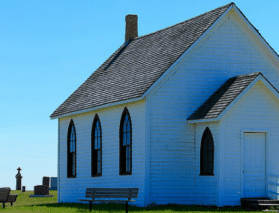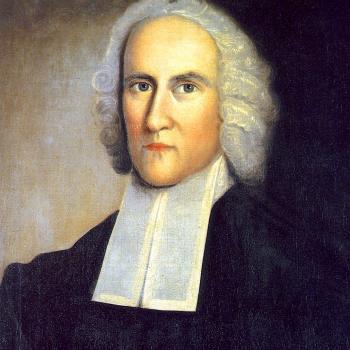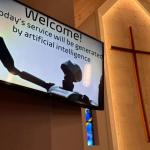The nature of religious observance has diversified and the place of religion in society has shifted since the 1944 Education Act, but religious belief is still as important as ever. So it’s time to ask: what is an appropriate relationship between religion and education in the modern world? And how can it be achieved?
Reform is long overdue – provision is piecemeal as changes have been made in response to evolving political and social climates. As a result, the status of religious education has experienced a pendulum effect, nevertheless remaining statutory regardless of the travel of the pendulum or the extent of the swing.
For US readers, let me just explain the patchwork quilt that is religious provision in our schools. Since the 1944 Education Act, an act of daily worship which is broadly Christian in nature has been compulsory – a law more honoured in its breach than its observance and which I have written about elsewhere. The teaching of Religious Education is compulsory to the age of 16, or to the age of 18 if you stay at school rather than go to a Further Education college. In addition, the UK has state- funded faith schools; the majority are Church of England or Catholic, with a minority representing non-conformist Christian, Muslim, Jewish, Hindu and Sikh faiths. The provision of RE teaching in these schools is determined differently from non-faith schools. Fee-paying schools may or may not be allied to a particular faith or faith ethos.
For those who have hoped for the end of religion, or at least its expression in the public square, it really is time to accept that religion isn’t going anywhere – its significance persists. So the question isn’t how to remove religion from our schools, but how to structure a form of teaching and learning which seeks to understand diversity of belief in a pluralist society and whether this can be achieved from the standpoint of distinctive faith.
This is what the Westminster Faith Report: A New Settlement for Religion and Belief in Schools, set out to achieve. Its starting point was that the exclusion of religion from public life would risk a reduction in religious literacy. It also acknowledged that non-religious forms of belief, such as humanism, deserve legitimacy. But rather than abolition, the report argues for negotiation of a new settlement. That includes the suggestion that schools might define themselves as evangelical Christian, broad C of E, traditional Catholic, liberal humanist, etc. and it’s an excellent idea. It simultaneously forces schools to consider their ethos when selecting their definition, provides parents with key information about that ethos, and bangs on the head once and for all the specious idea that schools can be neutral spaces.
Three areas were considered: collective worship, the teaching of RE as a subject, and the role of faith schools. After considering a range of options for collective worship the report recommended that the statutory obligation should be removed and Heads and governors should make their own decisions about provision. Although this has prompted concern that collective assemblies and so opportunities for spiritual reflection might sink without trace, the report’s authors are confident that Heads will value collective assembly enough to maintain it. Of all the conclusions in the report, this is the one which has provoked the most widespread response.
Then came consideration of the teaching of RE – the patchy provision, the widespread confusion about its purpose and the lack of time available to extend and deepen learning in the way which the subject deserves. This has led to negative impact at all stages of the teaching cycle – I guest blogged about this last year. The picture is further confused by the fact that some RE provision is instructional, or confessional (commonly and erroneously dubbed ‘indoctrination’) and is taught from a single, distinctive faith perspective.
The suggested solution to this is to centralise the curriculum, which is currently agreed at local level by each Standing Advisory Council on Religious Education (SACRE). The curriculum would embrace formation as a mode of learning, imbuing children with beliefs and values. SACREs would be retained and centrally financed to continue building bridges between schools and faith communities and the subject would become Religious and Moral Education. This mode of learning could still, the report argued, be experienced within a particular faith context as long as other faith perspectives were legitimised by debate and reflection – I think this misses the point of distinctive belief and belies a lack of understanding of spirituality. As the Catholic Education Service response points out, this would not fulfil the purpose in Catholic schools, given the distinctive nature of their RE curriculum. The Catholic faith won’t be alone in its concern about the distinctiveness of faith teaching and learning. The Church of England also expressed concern at the suggested removal of statutory provision between the ages of 14 and 16, with religion being added to spiritual, moral, social and cultural studies. This seems to militate against the report’s insistence that religious education needs to be of the highest quality.
On the matter of faith school provision the report suggested little beyond advising that admissions and staffing appointment laws should be allowed to continue but under close scrutiny. It acknowledged the right of worshipping families of genuine faith to be allowed access to schools which adhere to that faith.
Whilst the report suggested that instruction in a faith is a matter for families, Sunday Schools and madrasas, I found the brief, en passant comment that ‘there may be a need for inspection to safeguard against abuse or coercion’ chilling. That suggests the opening of the door for families who pray with their children to be subject to Ofsted inspections, for inspectors to invite themselves to Sunday Schools and for children to be asked if they are there willingly or at their parents’ behest. Lest you think I am a conspiracy theorist, ponder on the case of the Jehovah’s Witness mother whose son has been placed in foster care after a judge deemed the practice of her faith to be harming him.
So, while this is a worthwhile contribution to the ongoing debate of a thorny issue, I’m left with the distinct feeling that this is yet another piece of political manipulation to address extremism, social cohesion and those exceedingly awkward people who take their faith seriously. Is it a genuine attempt to find a common platform for the teaching of religion? An open attempt to reduce religious expression to a bland common denominator? Or a covert attempt to deal with fundamentalist education by using statute and inspection to bring us all into line?















